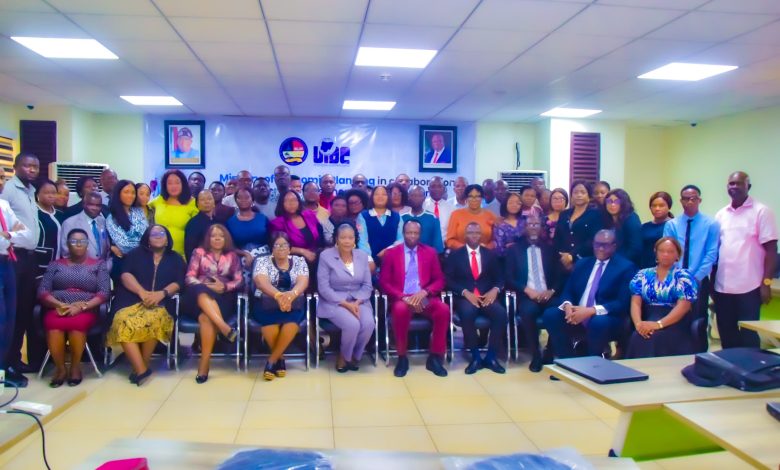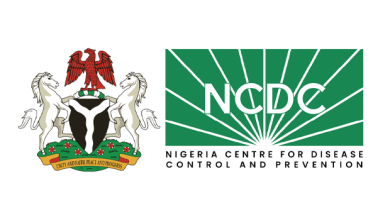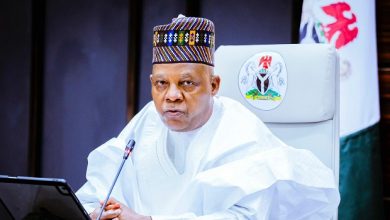Delta trains workers on data analysis for better service delivery

The Delta Ministry of Economic Planning, in collaboration with Universal Investment and Development Company (UIDC) Limited, on Monday, organised training for selected state civil servants on data analysis and visualisation.
The workshop, which took place in Asaba, was designed to equip participants with modern digital skills required to process and interpret data for informed governance.
In a speech to declare the training open, the State Commissioner for Economic Planning, Mr Sonny Ekedayen, emphasised the critical role of data in modern governance.
Ekedayen said: “Data is information. Data is life. Data is the future.
“Analysis is talking to the data and visualisation allows you to see and interact with it without being physically present.
”With the right data tools, decisions can be made faster and more accurately, even by non-technical users,” he said.
The commissioner, represented by the State Director of Statistics, Ms Nkechi Maduemezia, described data as “the new oil” that drives strategic development.
He urged participants to pay keen attention and fully engage in the sessions.
He further spoke on the importance of embracing data technology “to make civil servants more agile and capable of supporting decision-makers through clear, visualised insights”.
In a remark, the Head, Corporate Strategy and Planning UIDC, Dr Timothy Igbinosa, emphasised the urgency for public servants to embrace digital transformation.
Represented by an official from UIDC, Mr Godwin Mukoro, said: “We live in a digital age, phones, vehicles, the internet, everything is driven by technology.
“We must intentionally run fast to catch up with global civilisation.
”The gap we discovered between current practices and modern data analysis methods inspired this workshop. We must not be left behind.”
Igbinosa identified three categories of civil servants in the digital era: “those with little or no capacity for digital tools, those who know the tools but fail to apply them, and the very few who effectively utilise them”.
He charged participants to “think outside the box, change templates, and drive innovation” within the public service for better policy outcomes.
Igbinosa also said that the workshop was designed to bridge the gap between current practices and modern data analysis methods.
According to him, the workshop would also afford participants the opportunity to effectively utilise data analysis tools and drive innovation within the public service.
Also, a capital market consultant, Mr Gbe Lewis, affirmed UIDC’s commitment to supporting the state through training and capacity development initiatives.
He said, “UIDC is a finance and management development company owned by the Delta Government and supervised by the Ministry of Finance.
”We are proud to support this workshop because data analysis and visualisation are essential for growth and efficiency.
He commended the ministry for its strategic role in driving service delivery across the state and expressed the confidence that the training would significantly enhance the participants’ analytical skills.
Giving an overview of the workshop, Igbinosa advised the participants to think outside the box, while emphasising the need to gather accurate data for decision making for their bosses.
Also, a resource person at the workshop, Mr Felix Ofobruku, spoke on “Enhancing Data Management in the Public Service- Exploring Strategic Roles of the Administrative Officers”.
Ofobruku emphasised the role of the administrative officer’s strategic function in data governance and decision-making.
Another resource person, Mr Valentine Dafe, also spoke on, “ICT Essentials and Windows Skills”, and gave an overview on understanding what ICT entails, among others.
The workshop featured practical sessions on data handling, analysis, and visualisation tools, enabling participants to better support government planning and policy formulation through evidence-based decision-making.
The News Agency of Nigeria (NAN) reports that the training is part of the State Government’s commitment to a smarter and more efficient data-driven planning, in line with the “MORE Agenda”.
Participants will learn how to use data analysis and visualisation tools to support government planning and policy formulation.
NAN



